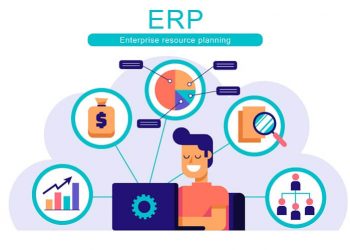What Data Should You Manage?
- August 8, 2022
- Posted by: stark
- Category: E-Commerce Development

Data is the backbone of an enterprise and your e-commerce organization wants to ensure a robust master data management solution is managing all your key data effectively. An MDM solution is an investment at multiple levels and you want to be making it wisely to manage the correct data. Not all data coming out of the organization needs to be managed. Usually, master data is the core data within the organization. While it may be comparatively small in volume, it is not short on complexity and value to the company.
This begets the question, so what data should your MDM solution be monitoring? We recommend that your e-commerce organization consider the following:
- Behaviour data – to give you an example, a customer buys a product or service, from your enterprise that manufactures the product. The customer may have bought the product from your channel partner may deliver the service or product. This results in the creation of a chain of data points that are reciprocal to each other, and enterprises store this data in an MDM solution as it is a long chain of events.
- Create, Read, Update, Destroy (CRUD) Cycle – this data may be a result of the different ways in which a client is acquired. For example, the client may be acquired online, or via a partner, or they come to a store and buy a product. The CRUD cycle is organized in a matrix of the customer, product, asset, and employee.
- Cardinality – refers to the number of elements in a set. For instance, if an enterprise has thousands of customers, or if an enterprise has hundreds of variants of a product or even hundreds of products, an MDM would be required to manage all this data.
- Lifetime – Master data tends to be less volatile. To give you an example let us consider a contract. A contract with a brand ambassador of the enterprise has a longer lifetime. It may be signed for three or five years. But a contract with a customer may be transactional and have a life of just six months. If an enterprise has thousands of customers, this customer data would require to be stored and accessed.
- Complexity – this is another factor to consider when determining whether your enterprise needs an MDM. For example, if the product is an ERP, or modules of an ERP that a client is buying every few months. Managing license costs, tracking maintenance requests, accepting requests for customization, etc. may result in complexity.
- Value – the more valuable the data is to an enterprise, the more likely it is to require storage in an MDM solution.
- Volatility – data points in an MDM solution are usually less volatile.
Reuse – reuse of data is the prime reason for its storage in an MDM solution.
Is your e-commerce enterprise preparing to adopt an MDM solution? Are you grappling with the data that needs to be stored? Bogged down by cleaning and migrating your data? Reach out to Navabrind IT Solutions. We help B2B and B2C clients through the tedious process of data cleaning and migration. We have helped a host of customers across industries make the most of their MDM solutions and we can help you too.
With over a decade of expertise in e-commerce solutions, we also help small and medium e-commerce businesses deploy Magento, Akeneo PIM, Odoo ERP and integrate them with your MDM solution. We have also helped our clients in the US, Europe, and India with mobile apps, cloud solutions, complex customizations, and have software developers you can hire.
Related Articles
-
Benefits of PIM for the Manufacturing Industry
Benefits of PIM for the Manufacturing Industry January 11, 2023 Posted by: stark Category: PIMCore Services No Comments The manufacturing industry is a complex one, and nothing can illustrate it better than this example of a box manufacturer. Company X manufactures boxes of various sizes, materials, and colors. It manufactures boxes to order and forJanuary 11, 2023 Read more -
How CPQ will Increase Business Opportunities for eCommerce Industry
How CPQ will Increase Business Opportunities for eCommerce Industry December 6, 2022 Posted by: adminuser Categories: CPQ, E-Commerce Development No Comments The e-commerce industry is burgeoning. Businesses and retail consumers are increasingly reviewing products, requesting quotes, and buying online for convenience and speed. Your business needs to be prepared to capitalize on this e-commerce opportunityDecember 6, 2022 Read more -
Reason why You Should Integrate Your CPQ with ERP
Reason why You Should Integrate Your CPQ with ERP December 6, 2022 Posted by: adminuser Categories: CPQ, ERP Implementation No Comments Does your e-commerce business generate a large number of quotes? Does your company sell a variety of products making your quotes complex? Do the products you sell have a differing value-added tax which furtherDecember 6, 2022 Read more
Get in touch with a solutions consultant that can share best practices and help solve specific challenges.




